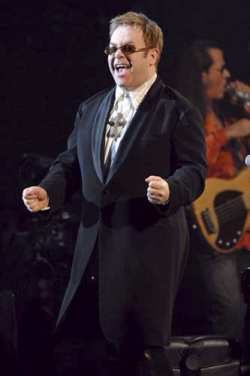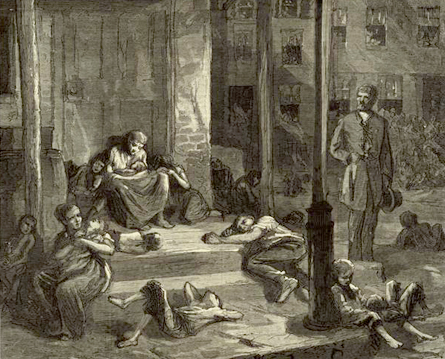 Before I can remember, my family has not been shy about our near obsession with President and Mrs. Carter. (So you're going to have to forgive my assumption that the entire world also thinks everything the man writes is genius!) My grandparents proudly display a photo of themselves with Rosalynn and Jimmy on the front porch of Maranatha Baptist Church, Plains, GA in their family room. My mother has been drafting a personal letter to him for over three years now in an attempt to share her admiration and his positive influence in our lives. She just can't seem to fully convey all that's there...so I think it's been laying dormant on her computer for a while. And well, let's be honest, while Tyler and I were dating, I gave him a Jimmy Carter bobblehead. The exhilaration with which he received the gift was added confirmation that surely our marriage was meant to be. (Here is a picture in case you don't believe me.) Jimmy watches our goings-on from the bookshelf in our living room. And well, we named our first born son after him, Jude Carter Mayfield. We like the Carters. When we met him at a book signing at Vroman's here in Pasadena last year, as he hurriedly signed my book and the publishers literally pushed me out of the way I said, "You're awesome!" He looked up and smiled.
Before I can remember, my family has not been shy about our near obsession with President and Mrs. Carter. (So you're going to have to forgive my assumption that the entire world also thinks everything the man writes is genius!) My grandparents proudly display a photo of themselves with Rosalynn and Jimmy on the front porch of Maranatha Baptist Church, Plains, GA in their family room. My mother has been drafting a personal letter to him for over three years now in an attempt to share her admiration and his positive influence in our lives. She just can't seem to fully convey all that's there...so I think it's been laying dormant on her computer for a while. And well, let's be honest, while Tyler and I were dating, I gave him a Jimmy Carter bobblehead. The exhilaration with which he received the gift was added confirmation that surely our marriage was meant to be. (Here is a picture in case you don't believe me.) Jimmy watches our goings-on from the bookshelf in our living room. And well, we named our first born son after him, Jude Carter Mayfield. We like the Carters. When we met him at a book signing at Vroman's here in Pasadena last year, as he hurriedly signed my book and the publishers literally pushed me out of the way I said, "You're awesome!" He looked up and smiled.Most of the information in that paragraph was useless to the overall point of this post; I just want you to know that we really admire their work both in and beyond the White House. I mean, he's eradicated diseases! Enough you say, on with it. Well, in his book (no, not the controversial Palestinian one), the I'm-the-smartest-man-ever-so-let-me-tell-you-how-to-change-the-world-from-my-perfect-perspective-one, Our Endangered Values: America's Moral Crisis, he closes with a chapter that underscores the most severe crisis to yet hit all of us: poverty. More specifically, Carter warns, "With little doubt, the greatest challenge we face is the growing chasm between the rich and poor people on the earth."
The Universal Declaration of Human Rights guarantees that all persons deserve a standard of living adequate for the health and well-being of themselves and their families. Carter writes in the book, "In my speech at the beginning of the new millennium, I outlined a few proposals for meeting this standard [no big deal, right, wait, it gets better], including increased development assistance with fewer strings, forgiveness of foreign debts of the poorest nations, seeking peaceful solutions when there are known threats to peace, getting to know the poor, giving people authority and responsibility over their own affairs, enhancing cooperations among donors, and recognizing the inevitable impact of abject poverty on human rights, violence, and susceptibility to recruitment for violent acts."
Here's the kicker statement, "Our Center's programs have shown that with wise use of even limited resources, extremely poor people demonstrate remarkable intelligence, innovation, and effectiveness." A few pages later he concludes that when rich people grant impoverished people the chance to respond to their lack of resources and poor condition, they improve their lives. That's for all you skeptics out there thinking that poverty is the mere result of laziness or greed.
One glaring element that is contributing to this disparaging assessment about the rich-poor divide is the fact that so few rich do not even know the name of a single poor person. While we all may not be called to establish an organization like Habitat for Humanity in order to heal this unsightly wound, surely we can stick a much needed band-aid on it by shaking hands with the next person we see who is in need, right? Review with me a few verbs Carter used in his surgical procedure --oops, I mean proposal from the quote above:
1) increase assistance
2) forgive
3) seek peace
4) get to know
5) give authority and responsibility
6) enhance
7) recognize
Is it just me, or is this solution based on one heck of a definition of what it means to be poor!? It seems he's really viewing poverty as a result of basic human rights violations. And this, my friends, is a huge infringement on social justice. From here, Carter cracks down on our present White House administration, which may dismay a few of you, but when confronted with the startling LOW figures in America's foreign aide budget, one can't help but note our lack of generosity as a nation. It's a problem, folks. On a national level, Carter doesn't let Bush and his posse of the hook either. Enumerating just how many decisions have been made, bills passed, and dollars lobbied on behalf of the wealthy, the chapter becomes difficult to finish. But he ends strong.
"We [America] should be seen as the unswerving champion of freedom and human rights, both among our own citizens and within the global community. America should be the focal point around which other nations of all kinds could marshal to combat threats to security and to enhance the quality of our common environment. We should be in the forefront of providing humane assistance to people in need, willing to lead other industrialized nations in sharing some of our great wealth with those who are destitute...There would be no real sacrifice in exemplifying these traits. Instead, our own well-being would be enhance by restoring the trust, admiration, and friendship that our nation formerly enjoyed among other peoples. At the same time, all Americans could be united at home in a common commitment to revive and nourish the religious faith and historic political and moral values that we have espoused and for which we have struggled during the past 230 years."
I couldn't have said it better myself. In fact, I'm not nearly this patriotic, nor do I care to be. But one thing is certain, the path our country is now walking does not seem centered enough on generosity, forgiveness, or peace. I have to claim security then, not in my American heritage, but in another kingdom that surpasses even the potential goodness of America. A kingdom to which Jimmy, too, first claims allegiance. (The End.)




 "Forgive me father for I have sinned..."
"Forgive me father for I have sinned..."












